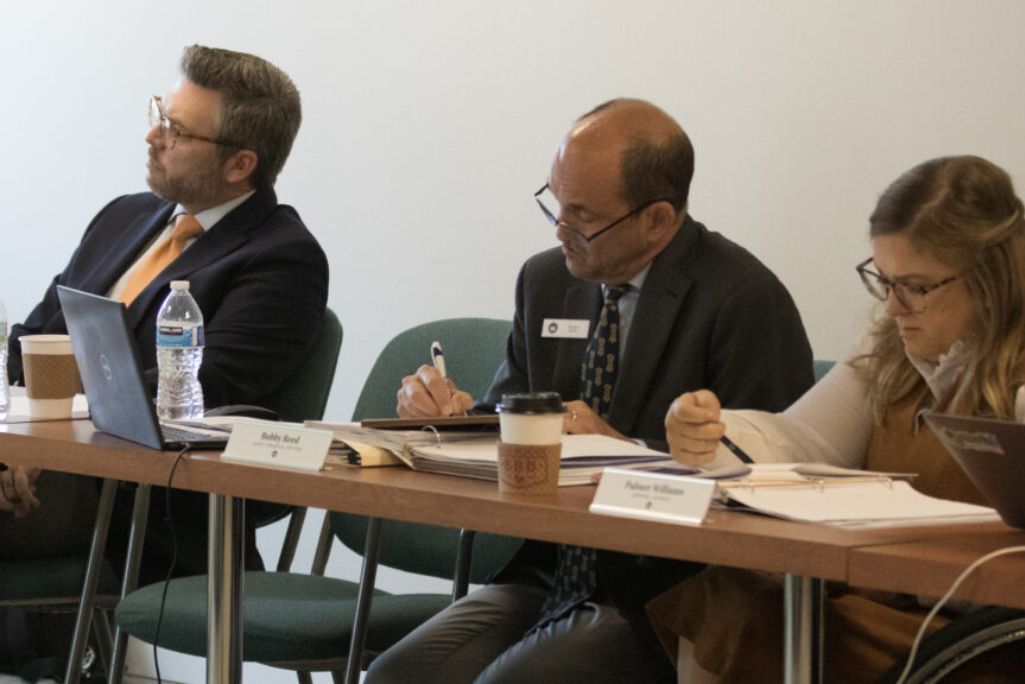Whether it is a new app sweeping the nation, a brand-new must-have iPhone upgrade or a new way to use virtual reality, technology is advancing at lightning speed.
As usage of digital devices increases, some Southern Baptist leaders are urging Christians to examine ways technology may be shaping them.
Jason Thacker, director of research and chair of research in technology ethics for the Ethics & Religious Liberty Commission (ERLC), told Baptist Press he believes technology is no longer merely a tool we use, but something that is changing how we view the world.
“Technology’s complexity, usefulness, growth and development often happen at an exponential scale,” Thacker said. “This is the nature of technology and what we’re experiencing now will only continue to increase in some sense. Technology isn’t going anywhere.
“As technology keeps advancing, things will become faster, get complex and more connected. Digital devices are not just a tool that we use, but it’s a tool that’s radically altering us.
“It’s shaping how we understand the nature of reality and truth, as well as how we connect in relationships. In a way, technology is discipling us. I think people are starting to wake up and see that something is not right about this.”
In his work with the ERLC, Thacker leads a research project for the entity called the Digital Public Square. The project focuses on providing resources for Southern Baptist churches related to navigating the ever-changing technological landscape.
Specific focus is given to issues related to free speech and religious liberty.
He explained this research is important for ministry, because technology influences every area of life.
“Technology isn’t a separate set of issues that Christians have to address or think about. It’s an element of all of the other issues related to the Christian life and Christian ethics,” Thacker said.
“Issues like marriage, sexuality, human dignity or justice, they are all affected by technology because we live in a digital society.”
In his book “Following Jesus in a Digital Age,” released this year, Thacker encourages Christians to use technology in a more sanctifying way.
One of the main pieces of advice he shares is for Christians to take their time in deciding how to use technology in their lives, and take steps to be a light in the digital space.
“At the heart of technology is making things faster, but what we see throughout the wisdom literature is we are called to slow down,” Thacker said. “Wisdom is not gained overnight. There is not an app for that. There is no on and off switch.
“It’s important for Christians think wisely and think deeply, and that is going to come from slowing down and asking some of these big questions how this is shaping me and how do I then walk with wisdom and seek to follow Jesus better.
“Christians need to engage the culture for how it is, not as we want it to be. A digital society comes with a lot of unique challenges, but also a lot of unique opportunities, and I believe God’s calling us to step into these things and be a voice of hope, peace and of Gospel transformation in our communities.”
One Southern Baptist seeking to apply this kind of wisdom in his own life is Jeff Mingee, regional strategist for the Southeast Region of the SBC of Virginia.
What began as a doctoral research paper while a student at Southeastern Baptist Theological Seminary became a self-examination into the way he was using technology in his own life.
The main principle Mingee discovered is applying Scripture to one’s use of technology, no matter how fast it advances.
“There is definitely a danger for Christians to adopt technological advances in a worldly way with little or no thought as to will this glory God,” Mingee said.
“We can’t predict the effect of technological advancements on us – what will the shaping influence of the iPhone in my life? I have no idea and no way of knowing that. That’s a challenge with technological advances is we can’t wait until we know the outcome as to whether or not we’re going to adopt it. We either use it or not and navigate as we go.
“The need is for Christians to apply 1 Corinthians 10:31 to our digital habits, whether we are adopting technological advances or refraining from them.”
Mingee compiled some of his thoughts and research related to technology use in a book titled, “Digital Dominion: Five Questions Christians Should Ask To Take Control of Their Digital Devices.”
The book contains questions for Christians to examine technology’s role in their lives and determine whether they are controlling technology or it is controlling them.
“I have too much joy offered me in life to waste my life staring at a rectangle that fits in my hand,” Mingee said. “There is too much joy to miss out on because you misused your device.
“I think our digital devices can fuel God-honoring joy in our lives, so I want to find ways to steward and use technology well.”
(EDITOR’S NOTE – Timothy Cockes is a Baptist Press staff writer.)


